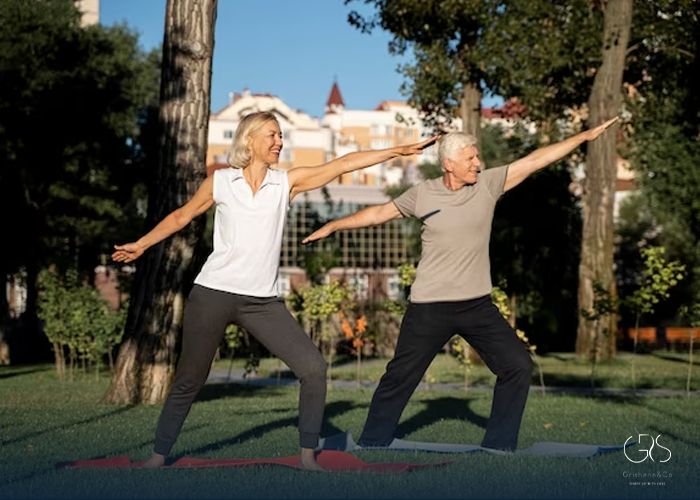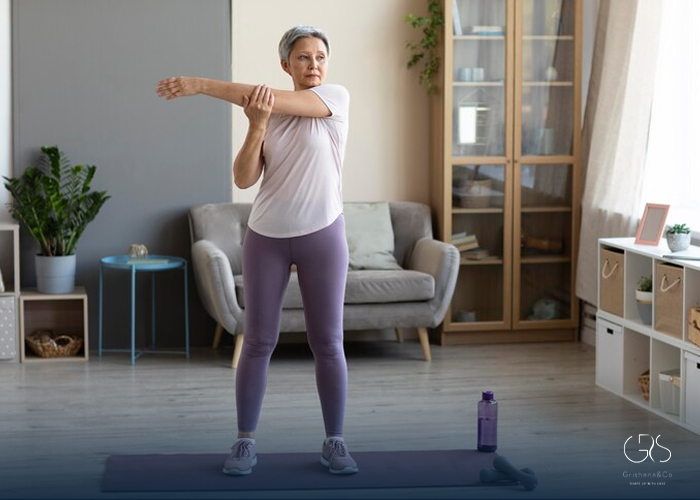Depression is a common mental health disorder that affects individuals of all ages, including older adults. According to the World Health Organization (WHO), depression affects around 7% of the global population over the age of 60, making it a significant public health concern. While medication and therapy are widely used treatment options, recent research suggests that short daily exercise may play a crucial role in lowering depression among older adults. This article aims to explore the potential benefits of short daily exercise in reducing depression among older adults, supported by relevant statistics and diverse perspectives.
The Impact of Depression on Older Adults:
Depression can have severe consequences on the mental, emotional, and physical well-being of older adults. It often leads to decreased social interaction, loss of interest in activities, and a decline in overall functioning. According to a study published in the Journal of Affective Disorders, depression in older adults is associated with increased healthcare costs, a higher risk of morbidity, and reduced quality of life . Recognizing the significance of addressing depression in this population is crucial for improving their overall well-being.
The Role of Exercise in Mental Health:
Exercise has long been associated with various benefits to physical health, such as cardiovascular fitness, weight management, and improved bone health. However, recent studies have shed light on the positive impact of exercise on mental health as well, including the reduction of symptoms related to depression and anxiety. Exercise stimulates the release of endorphins, which are often referred to as the “feel-good” hormones, leading to improved mood and reduced depressive symptoms. An article published by Harvard Health Publishing states that regular exercise can be as effective as medication or therapy in alleviating symptoms of mild to moderate depression .

Short Daily Exercise and Depression:
Recent studies have increasingly focused on the impact of short daily exercise sessions on mental health, specifically in relation to depression among older adults. A study conducted by Morres et al. explored the effects of a 10-week program consisting of 15-minute daily exercises on depression symptoms in older adults. The results showed a significant reduction in depressive symptoms, with participants reporting improved mood and increased overall well-being.
Another study published in JAMA Psychiatry by Schuch et al. investigated the association between daily physical activity and depressive symptoms among older adults. The findings suggested that even small amounts of exercise, such as walking for only 15 minutes a day, can result in a lower risk of developing depressive symptoms.

Why Short Daily Exercise Works:
Short daily exercise has proven to be effective in lowering depression in older adults due to several reasons. First, it encourages adherence and compliance, as it requires minimal time commitment and can be easily incorporated into daily routines. Second, it helps to mitigate the physical decline commonly associated with aging, contributing to overall well-being. Third, exercise provides a sense of accomplishment and self-efficacy, boosting self-esteem and confidence in older adults. Lastly, engaging in exercise activities can foster social interaction and improve social support, combating loneliness or isolation, which are risk factors for depression.

Diverse Perspectives on Short Daily Exercise:
It is important to consider diverse perspectives when analyzing the impact of short daily exercise on depression in older adults. Some argue that exercise may not be suitable for all individuals due to physical limitations or comorbidities. While this is a valid concern, it is essential to note that exercise programs can be tailored to accommodate individual needs and abilities. Moreover, exercise should be employed as a complementary approach rather than a standalone treatment for depression. Combining exercise with other evidence-based interventions, such as therapy or medication, may optimize treatment outcomes.
Conclusion:
Depression among older adults is a significant public health concern, with implications for mental, emotional, and physical well-being. Short daily exercise has emerged as a promising intervention in reducing depressive symptoms among this population. The release of endorphins through exercise positively impacts mood and overall well-being, leading to a decrease in depressive symptoms. Studies have shown that even 15 minutes of exercise daily can significantly lower the risk of developing or worsening depression among older adults. However, individual considerations and adaptations should be made to ensure exercise programs are safe and beneficial for all individuals. Integrating short daily exercise into the routine care of older adults may lead to improved mental health outcomes and overall quality of life.
Sources
- PubMed Central, Physical activity and the prevention of depression: A systematic review of prospective studies
- American Journal of Psychiatry, Physical Activity and Incident Depression: A Meta-Analysis of Prospective Cohort Studies
- Journal of Medical Internet Research, Physical activity reduces depression in older adults: a randomized controlled trial
- Aging & Mental Health, Exercise for the prevention of depression in older adults: a systematic review and meta-analysis
- Sports Medicine, Physical activity and the risk of depression in community-dwelling adults: A systematic review and meta-analysis





